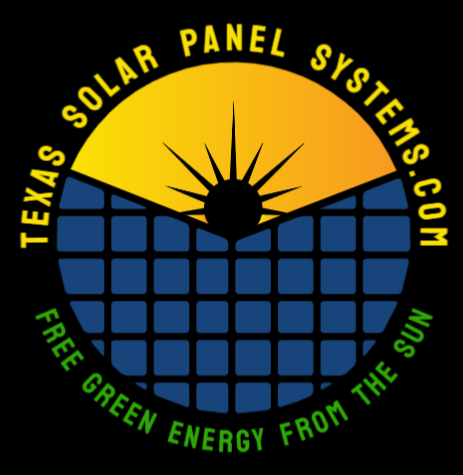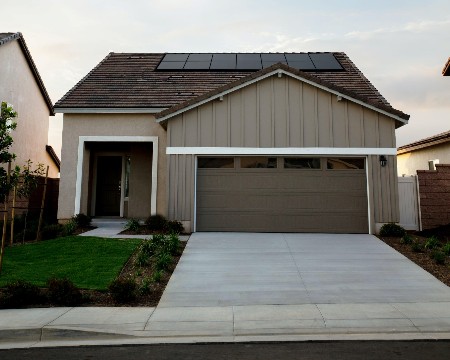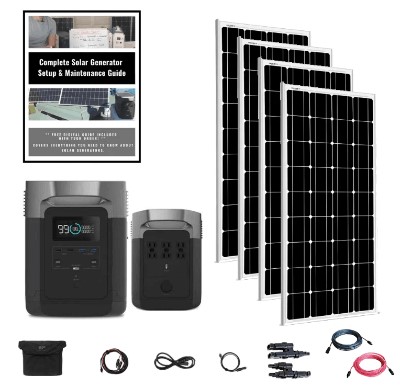Texas Solar Panels The Preferred Brand

Welcome to the sunny world of Texas Solar Panel Systems! If you’re considering harnessing the sun’s power to reduce energy bills and positively impact the environment, you’ve come to the right place. In this blog post, we’ll look at what makes Texas Solar Panel Systems stand out and why they quickly become the preferred brand for homeowners across Lone Star State. So grab your shades and get ready to dive into all things solar!
What is Texas Solar Panel Systems? – We Are a Solar Advertising Company – Call Bill at 225-413-8928 in Rockwall, Texas
Texas Solar Panel Systems is a leading provider of solar energy solutions in the great state of Texas. They specialize in designing and installing top-of-the-line solar panel systems that allow homeowners to generate their own clean, renewable energy. With a commitment to quality and customer satisfaction, they have quickly established themselves as the go-to brand for those looking to embrace sustainable living.
One critical factor that separates Texas Solar Panels has expertise in customizing solar solutions based on individual needs. Whether you live in a small apartment or a sprawling ranch, they can tailor a system that maximizes your energy production potential while considering factors like roof space, sun exposure, and budget.
Another reason Texas Solar Panel Systems stands out is its use of cutting-edge technology. Their panels have advanced features such as high-efficiency cells and durable materials, ensuring optimal performance even in challenging weather conditions.
In addition to providing exceptional products, Texas Solar Panel Systems also offers comprehensive installation services. Their experienced solar technicians will handle every installation process with precision and care, ensuring your system is up and running smoothly in no time.
By choosing Texas Solar Panel Systems for your solar needs, you’ll invest in an eco-friendly solution and enjoy long-term cost savings on your electricity bills. With rising energy costs becoming increasingly burdensome for many households across Texas, switching to solar power can provide significant financial relief while reducing reliance on fossil fuels.
So whether you’re motivated by environmental concerns or simply looking to save money over the long term, it’s clear that Texas Solar Panel Systems is the preferred brand for harnessing the sun’s power. Join countless other Texans who are already reaping the benefits of sustainable living with these top-notch solar panel systems from this trusted company!
The Different Types of Solar Panel Systems
Solar panel systems come in various types, each with unique features and benefits. Understanding the options available can help you make an informed decision when choosing a solar panel system for your home or business.
One type of solar panel system is the grid-tied system. As the name suggests, these systems are connected to the electrical grid. They allow you to generate electricity from sunlight and offset your energy consumption but do not store excess energy. This means that during low daylight, you would still rely on the grid for power.
On the other hand, off-grid solar panel systems are designed to operate independently from the electrical grid. These systems incorporate batteries to store excess energy generated during sunny periods when little or no sunlight is available. Off-grid systems provide greater energy independence but may require more maintenance and upfront costs.
Another popular option is hybrid solar panel systems, which combine elements of both grid-tied and off-grid setups. These versatile systems allow you to generate electricity from solar panels while having access to backup power from batteries or the electrical grid if needed.
Additionally, portable solar panel systems offer flexibility and convenience for outdoor activities such as camping or RV trips. These compact units can be easily transported and provide a convenient renewable energy source.
Each type of solar panel system has advantages depending on your specific needs and preferences. Whether it’s maximizing self-sufficiency with an off-grid setup or taking advantage of incentives through a grid-tied system, there is a solution that suits every situation.
Choosing the correct type of solar panel system requires careful consideration of budget, location, energy requirements, and long-term goals. Consulting with a reputable solar installation company can help you select the best option for your unique circumstances.
By exploring all available options and understanding how they align with your specific needs, you can harness the power of Texas Solar Panel Systems effectively while contributing towards a cleaner, more sustainable future.
Pros and Cons of Solar Panels Systems
Solar panel systems have recently gained popularity as sustainable and cost-effective energy solutions. However, like any other technology, they come with their own set of pros and cons.
One of the significant advantages of solar panel systems is their ability to generate clean and renewable energy. These systems can produce electricity by harnessing sunlight without emitting harmful greenhouse gases or atmospheric pollutants. This helps combat climate change and contributes to cleaner air quality.
Another benefit is the potential for long-term savings on energy bills. Once installed, solar panels can significantly reduce or even eliminate reliance on traditional grid electricity. This means lower monthly utility costs and protection against rising energy prices.
In addition to financial benefits, solar panel systems offer homeowners increased energy independence. With a reliable source of electricity generated from the sun, individuals can become less dependent on fossil fuels and centralized power grids.
However, it’s essential to consider some drawbacks too. The initial installation cost can be pretty high compared to conventional methods of generating electricity. While there are various financing options available that make solar panels more affordable upfront, they may still require a significant investment.
Furthermore, solar power generation relies heavily on weather conditions such as sunlight intensity and duration. In areas with limited sunshine or frequent cloud cover, efficiency may be reduced, affecting overall system performance.
Maintenance is another aspect that should be considered when considering solar panels. Although modern systems are designed for durability and require minimal upkeep over time, occasional cleaning might be necessary to ensure optimal efficiency.
It’s crucial to conduct thorough research before deciding if a solar panel system is suitable for your home or business needs. Consider factors such as location suitability (i.e., availability of direct sunlight), local regulations/incentives supporting renewable energy adoption (such as tax credits), budget constraints, and long-term goals regarding sustainability.
What are the Best Solar Panel Systems?
Several factors must be considered when choosing the best solar panel system for your home or business. The efficiency and performance of the system, as well as its durability and warranty, all play a role in determining which one is right for you.
One popular option is the Texas Solar Panel Systems brand. They offer a range of high-quality panels designed to maximize energy production and minimize maintenance requirements. Their meetings are known for their reliability and longevity, making them a wise investment for those looking to go solar.
Another top contender in the market is the SunPower solar panel system. These panels boast some of the highest efficiency ratings available, meaning they can generate more electricity from sunlight than other brands. This makes them an excellent choice for homeowners or businesses with limited roof space.
For those on a budget, Canadian Solar offers affordable yet reliable options. While their efficiency may not be at par with some other brands, they still provide a cost-effective solution that can help reduce your carbon footprint while saving money on electricity bills.
If aesthetics are important, LG Solar has sleek and stylish designs that seamlessly blend into any architectural style. These panels not only look great but also deliver excellent performance and durability.
Determining the best solar panel system depends on your specific needs and priorities. It’s essential to do thorough research and consult with professionals who can assess your situation accurately before deciding which brand will work best for you.
Solar Panel System Recipes
Regarding solar panel systems, there are various recipes you can follow depending on your energy needs and available resources. Here are a few popular recipes that have been proven effective:
1. The Off-Grid Recipe: This recipe is perfect for disconnecting entirely from the traditional power grid. It involves installing sufficient solar panels and a battery storage system to meet all your electricity needs, even during cloudy days or at night.
2. The Grid-Tied Recipe: If you still want to use traditional electricity when needed but also want to take advantage of solar power, this recipe is for you. With a grid-tied system, excess energy generated by your solar panels can be fed back into the grid in exchange for credits or monetary compensation.
3. The Hybrid Recipe: The hybrid recipe is ideal for those who want the best of both worlds – self-sufficiency and backup power. This combines solar panels with renewable energy sources like wind turbines, hydroelectric generators, and battery storage capabilities.
Each recipe has unique benefits and considerations, so assessing your requirements is essential before deciding which suits you best.
Remember that these recipes are guidelines and can be customized according to individual preferences and circumstances. Consulting with an experienced solar installer is always recommended to ensure optimal results.
Explore different recipes until you find the perfect blend of ingredients that fit your energy goals!
Alternatives to Solar Panel Systems
When it comes to renewable energy, solar panels are often the first thing that comes to mind. However, other options are worth considering if you want to reduce your carbon footprint and save on electricity bills.
One popular alternative is wind turbines. Wind power has been harnessed for centuries, and modern wind turbines can generate significant amounts of electricity. They convert the wind’s kinetic energy into electrical power through a generator. While they may not be suitable for every location due to space requirements and potential noise concerns, they can be viable in windy areas.
Another alternative is hydropower systems. Harnessing the power of flowing or falling water can provide a reliable source of clean energy. Hydropower systems utilize turbines or generators to convert mechanical energy into electricity.
Geothermal heat pumps offer another green solution. By tapping into the earth’s natural heat, these systems use geothermal wells or loops buried underground to transfer warmth during winter months and cool air during summer months. This technology eliminates the need for traditional heating and cooling methods powered by fossil fuels.
Biomass systems are yet another option worth exploring. These systems use organic materials such as wood pellets, agricultural waste, or even dedicated crops like corn or switchgrass to produce heat or electricity through combustion processes.
Don’t overlook small-scale solutions like solar water heaters or passive solar design techniques that optimize natural sunlight for heating and lighting purposes within buildings.
While solar panel systems remain one of the most popular choices for renewable energy generation, it’s essential to consider all available alternatives based on your specific needs and geographical location before deciding.
Final Thoughts on Going Solar in Texas

After exploring the world of solar panel systems, it is clear that Texas Solar Panel Systems stands out as a preferred brand. With their wide range of options and high-quality products, they have established themselves as leaders in the industry.
Texas Solar Panel Systems offers various solar panel systems to suit different needs and preferences. Customers can choose the plan that best fits their requirements, from monocrystalline panels for maximum efficiency to thin film panels for flexibility.
Like any technology, solar panel systems come with pros and cons. On the positive side, they offer clean and renewable energy, reduce electricity bills, and are environmentally friendly. However, there are considerations such as upfront costs and dependency on sunlight availability.
When choosing the best solar panel systems, Texas Solar Panel Systems is undoubtedly a top contender. Their commitment to quality craftsmanship ensures long-lasting performance and customer satisfaction.
Texas Solar Panel Systems provides recipes for complete system setups to make things even more convenient for homeowners interested in going solar. These recipes simplify the selection process by offering pre-designed combinations of panels, inverters, batteries, and other components needed for a fully functional system.
While solar panel systems are an excellent option for many households seeking sustainable energy solutions, alternatives may be worth considering. Exploring options such as wind turbines or geothermal heat pumps that might better suit specific circumstances or locations is essential.
Regarding reliable performance coupled with exceptional customer support – Texas Solar Panels are undeniably one of the leading brands in providing state-of-the-art solar solutions across Texas! By harnessing abundant sunshine through advanced technology like Texas Solar offers, you too, can contribute towards creating a greener future while enjoying significant savings on your energy bills!






